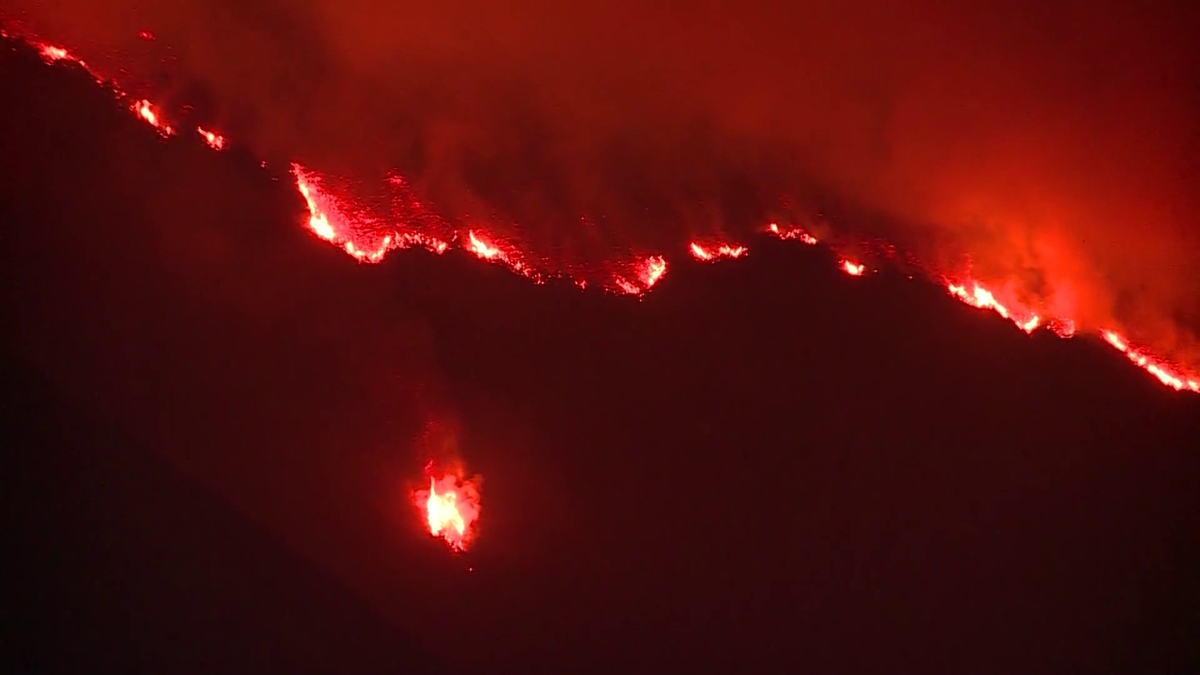Preparing For Drier Weather: A Practical Guide

Table of Contents
Conserving Water During Drier Weather
Water conservation is paramount during drier weather. Implementing water-wise practices both indoors and outdoors can significantly reduce your water consumption and help you navigate dry spells more effectively. Let's explore key strategies for efficient water usage.
Implementing Water-Wise Landscaping
Your landscaping choices significantly impact your water usage. By selecting drought-tolerant plants and employing efficient watering techniques, you can dramatically reduce your water consumption.
- Choose drought-tolerant plants and grasses: Opt for native plants and grasses that are naturally adapted to your region's drier climate. These require less watering and are more resilient to dry conditions. Research plants suitable for your specific area’s climate and soil type.
- Utilize mulch to retain soil moisture: Applying a layer of mulch around your plants helps retain soil moisture, reducing the frequency of watering. Organic mulches, like wood chips or shredded bark, also improve soil health.
- Consider xeriscaping techniques: Xeriscaping is a landscaping approach that emphasizes water conservation. It involves using native plants, efficient irrigation, and drought-tolerant ground cover to create a beautiful and water-wise landscape.
- Install a drip irrigation system: Drip irrigation systems deliver water directly to the roots of your plants, minimizing water waste through evaporation and runoff. This method is far more efficient than traditional sprinkler systems.
- Water deeply but less frequently: Deep watering encourages deep root growth, making your plants more resilient to dry periods. Water less often but for longer durations to ensure the water reaches the roots.
Reducing Water Usage Indoors
Conserving water isn't limited to your outdoor spaces. Implementing simple changes indoors can also significantly reduce your overall water consumption.
- Fix leaky faucets and pipes promptly: Even small leaks can waste significant amounts of water over time. Address leaks immediately to prevent unnecessary water loss.
- Install low-flow showerheads and toilets: Low-flow fixtures use less water without sacrificing performance. These simple upgrades can make a big difference in your overall water usage.
- Run full loads in your washing machine and dishwasher: Avoid running these appliances with half-empty loads. Wait until you have a full load to maximize efficiency and conserve water.
- Reuse greywater for watering plants (where appropriate): Greywater, from showers and sinks, can be reused for watering plants after proper filtration. Check your local regulations before implementing this practice.
- Collect rainwater for gardening purposes: Installing rain barrels to collect rainwater provides a free and sustainable source of water for your garden.
Protecting Your Home from Drier Weather Risks
Drier weather increases the risk of fire and structural damage to your home. Taking proactive steps to mitigate these risks is essential for protecting your property.
Fire Safety Precautions
Preventing wildfires and protecting your home from fire damage is crucial during drier weather. Implementing these precautions is essential for home fire safety.
- Clear dry leaves and debris from your gutters and around your home: Dry vegetation is highly flammable. Regularly cleaning debris from your property reduces the risk of fire spreading to your home.
- Maintain a defensible space around your property by removing flammable vegetation: Create a buffer zone around your home by removing shrubs, trees, and other flammable materials. This will help prevent a fire from reaching your house.
- Store flammable materials safely and away from ignition sources: Keep gas cans, propane tanks, and other flammable materials in a safe, designated area away from your home and ignition sources.
- Regularly inspect and maintain your chimney and fireplace: Regular cleaning prevents creosote buildup, a major cause of chimney fires.
- Have a fire extinguisher readily available and know how to use it: Ensure your fire extinguisher is properly charged and that you and your family know how to use it in case of a fire.
Preventing Structural Damage
Dry weather can also cause structural damage to your home. Regular maintenance and preventative measures can help mitigate this risk.
- Check for and repair any cracks in your foundation or walls: Cracks can allow water to seep in, causing further damage. Repair these promptly to prevent larger problems.
- Ensure proper ventilation in your attic to prevent overheating: Adequate attic ventilation prevents heat buildup, reducing the risk of structural damage from extreme heat.
- Inspect your roof for any damage and address any issues promptly: Damaged roofing can lead to leaks and further structural damage. Regular inspections are vital.
- Consider using weather stripping to seal windows and doors against drafts: Weather stripping helps prevent heat loss in the winter and keeps cool air in during the summer, protecting against extreme temperatures.
- Monitor your property for signs of pest infestation that could be exacerbated by dry conditions: Dry conditions can drive pests into your home. Regular inspections and pest control measures can help prevent infestations.
Preparing Yourself for Drier Weather Conditions
Protecting your health and well-being during drier weather is just as important as protecting your property. Staying informed and prepared is key to staying safe.
Personal Health and Hydration
Staying hydrated and taking precautions against heat-related illnesses is critical during periods of drier weather.
- Drink plenty of water throughout the day, even if you don't feel thirsty: Dehydration can occur easily in dry conditions. Make a conscious effort to drink water regularly.
- Wear sunscreen and protective clothing to avoid sunburn: The sun's rays are stronger during dry periods. Protect your skin with sunscreen and clothing.
- Limit strenuous outdoor activities during the hottest parts of the day: Schedule outdoor activities for cooler parts of the day to reduce the risk of heat exhaustion.
- Be aware of the signs and symptoms of heat exhaustion and heatstroke: Familiarize yourself with these symptoms and seek medical attention if needed.
- Check on elderly neighbors or vulnerable individuals regularly: Older adults and those with health conditions are more susceptible to heat-related illnesses.
Staying Informed and Prepared
Staying informed about weather forecasts and developing an emergency plan will help you manage drier weather effectively.
- Monitor weather forecasts regularly for heat warnings and fire danger alerts: Pay close attention to weather reports and heed any warnings issued.
- Develop an emergency plan for power outages or extreme heat: Have a plan for where you'll go if there's a power outage or extreme heat.
- Stock up on essential supplies like water, non-perishable food, and medications: Be prepared for potential disruptions to services.
- Know the location of your nearest fire hydrant and emergency services: Knowing your surroundings can be vital in an emergency.
- Familiarize yourself with your community's emergency response procedures: Understanding your local emergency plan will help you respond effectively.
Conclusion
Preparing for drier weather is crucial for protecting your property, your health, and your community. By taking proactive steps to conserve water, protect your home from fire and structural damage, and safeguard your personal well-being, you can successfully navigate periods of dry conditions. Remember to implement the water conservation techniques discussed, prioritize fire safety measures, and stay informed about weather forecasts. Don't wait until drier weather arrives; start preparing for drier weather now and ensure a safe and comfortable season for everyone. Learn more about effective drier weather preparedness strategies and protect your home and family.

Featured Posts
-
 Wtt Announces Groundbreaking Competitive Concept
May 21, 2025
Wtt Announces Groundbreaking Competitive Concept
May 21, 2025 -
 Sejarah Dan Statistik Juara Premier League Siapa Yang Akan Mengikuti Jejak Liverpool
May 21, 2025
Sejarah Dan Statistik Juara Premier League Siapa Yang Akan Mengikuti Jejak Liverpool
May 21, 2025 -
 Nantes Et Ses Tours Un Defi Pour Les Cordistes
May 21, 2025
Nantes Et Ses Tours Un Defi Pour Les Cordistes
May 21, 2025 -
 Raw 5 19 2025 A Mixed Bag Our Top Moments And Low Points
May 21, 2025
Raw 5 19 2025 A Mixed Bag Our Top Moments And Low Points
May 21, 2025 -
 Service De Navette Gratuit Experimental Entre La Haye Fouassiere Et Haute Goulaine
May 21, 2025
Service De Navette Gratuit Experimental Entre La Haye Fouassiere Et Haute Goulaine
May 21, 2025
Latest Posts
-
 Sound Perimeter Musics Role In Building Connection
May 22, 2025
Sound Perimeter Musics Role In Building Connection
May 22, 2025 -
 Ea Fc 25 Fut Birthday Best Player Cards And Tier List
May 22, 2025
Ea Fc 25 Fut Birthday Best Player Cards And Tier List
May 22, 2025 -
 Inside Athena Calderones Impressive Roman Milestone Party
May 22, 2025
Inside Athena Calderones Impressive Roman Milestone Party
May 22, 2025 -
 The Power Of Music Exploring The Sound Perimeter Of Community
May 22, 2025
The Power Of Music Exploring The Sound Perimeter Of Community
May 22, 2025 -
 Athena Calderones Extravagant Rome Milestone Celebration Details And Highlights
May 22, 2025
Athena Calderones Extravagant Rome Milestone Celebration Details And Highlights
May 22, 2025
